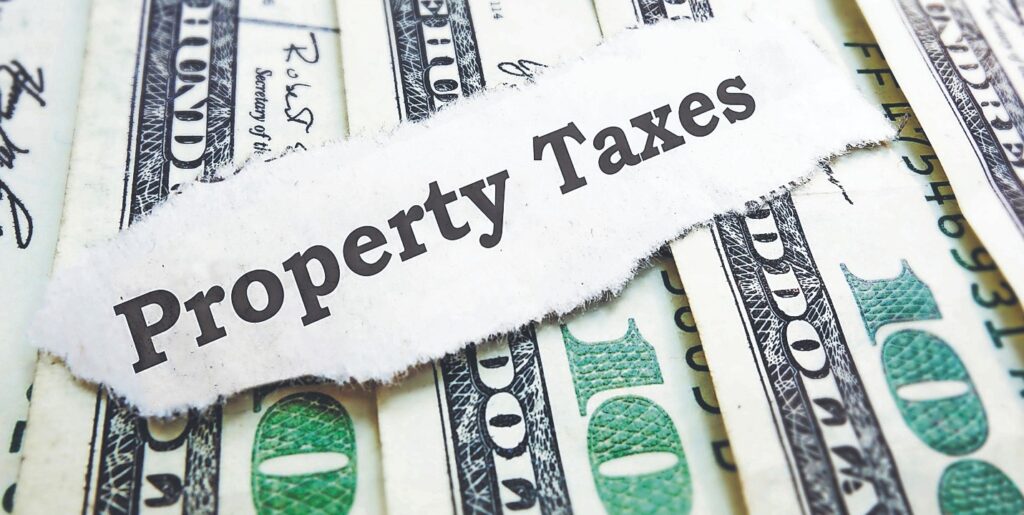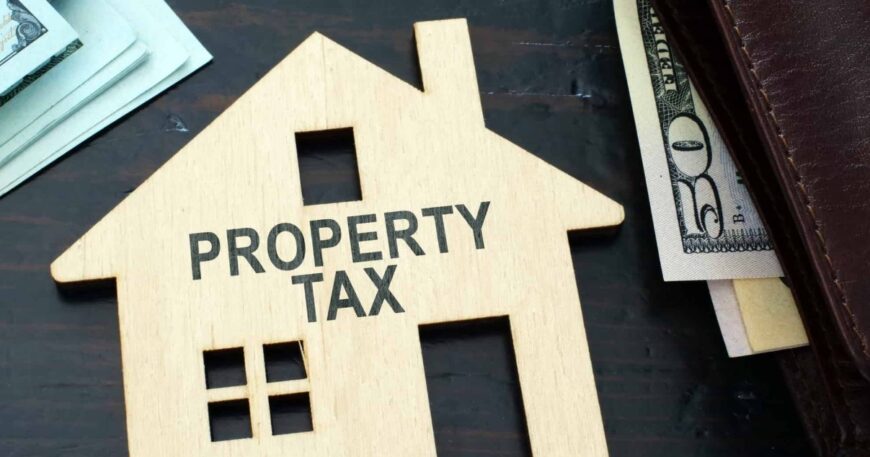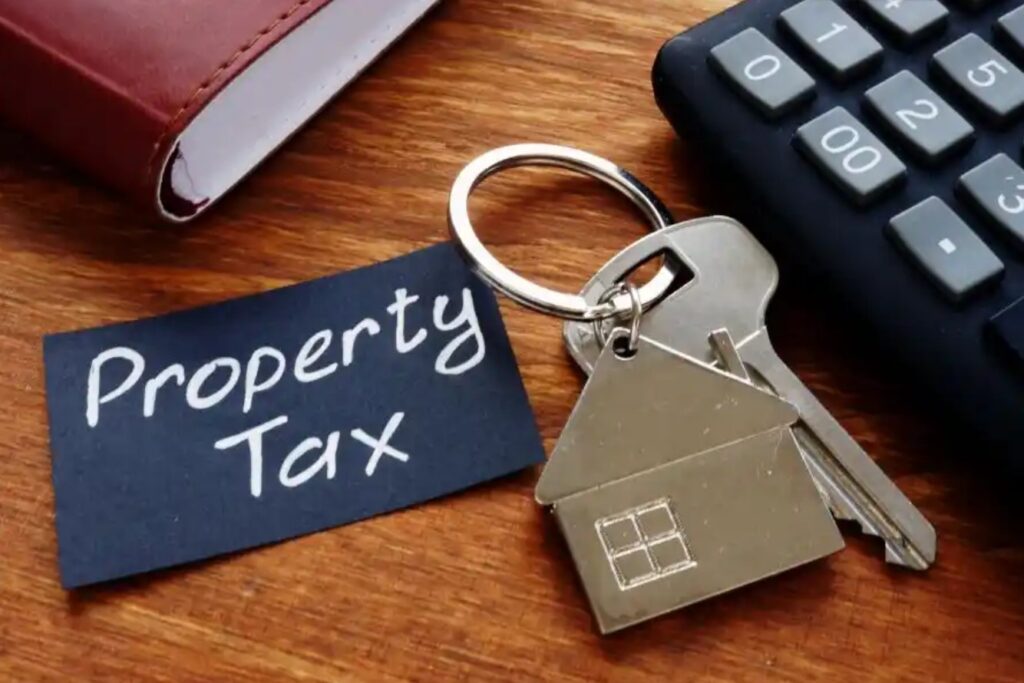Introduction.
Property taxes are essential to owning real estate, and understanding how they work is crucial whether you’re a homeowner, investor, or business owner. In this article, we’ll explore what property tax is, dive into the specifics of property taxes in New York City (NYC) and New Jersey (NJ), explain personal property-tax, and clarify whether property taxes are deductible. By the end of this guide, you’ll have a solid grasp of property taxes and how they impact your finances.
What is Property Tax?
Property tax is a tax levied by the government on your property. It’s an essential source of revenue for local governments, which use the funds to pay for public services such as schools, police, fire departments, and road maintenance. Property taxes are based on the value of the property you own, which includes both land and any structures on it.
Governments assess property taxes on a variety of properties, including residential homes, commercial properties, and vacant land. The value of the property determines how much tax you’ll owe, and the rate can vary significantly based on the location.
Key Components of Property Tax:
- Assessed Value: This is the value of your property as determined by local tax authorities. It may differ from the market value of your property, but it’s the value used to calculate your tax bill.
- Tax Rate: Local governments set a property tax rate, which is typically expressed as a percentage. This rate is applied to the assessed value of your property to determine how much you owe.
- Exemptions: Some properties are eligible for tax exemptions or reductions. For instance, in many areas, certain properties like schools, government buildings, or churches are exempt from property taxes.
Property tax rates can fluctuate over time, and they often differ from one location to another. Let’s dive deeper into how property taxes function in specific regions, starting with New York City and New Jersey.

NYC Property Tax
New York City (NYC) has a complex property tax system that differs from other parts of the United States. The NYC property tax system uses a classification system that divides properties into four categories, each with its tax rates.
How NYC Property Taxes Work
NYC property taxes are assessed annually, and the tax rate varies depending on the type of property you own. The four property classes are as follows:
1) Class ): Residential properties with one to three units (such as single-family homes and small apartment buildings).
2) Class 2: Residential properties with more than three units (such as large apartment buildings).
3) Class 3: Utility properties, like electric and gas utility buildings.
4) Class 4: Commercial properties, such as office buildings, industrial buildings, and shopping centers.
Each class has its own assessment and tax rates. Property taxes in NYC are based on the “assessed value” of the property, which is determined by the NYC Department of Finance. For residential properties, the assessment is typically lower than the market value of the property, which can help keep tax bills manageable.
How to Calculate NYC Property Taxes
The basic formula for calculating your NYC property tax is:
Property Tax = Assessed Value x Tax Rate
However, due to the unique assessment system, the final tax bill may include other factors such as abatements, exemptions, and changes in property value over time.
Tax Deductibility of NYC Property Taxes
Property taxes in NYC, like elsewhere in the U.S., may be deductible on your federal income tax return, but it’s essential to consult with a tax professional to determine how much you can deduct.
NJ Property Tax
Property taxes in New Jersey are among the highest in the nation. New Jersey’s property tax system is also based on the value of the property, and it varies from one municipality to another.
How NJ Property Taxes Work
In New Jersey, property taxes are assessed by the local municipality. Each municipality has an Assessor’s Office that determines the value of the property and calculates the tax based on the local tax rate.
Unlike NYC, where tax rates are determined by property class, NJ property taxes are calculated by multiplying the assessed value of your property by the local tax rate, which is determined annually by the municipality.
How to Calculate NJ Property Taxes
To calculate your New Jersey property tax, you’ll need to know your property’s assessed value and your municipality’s local tax rate. The formula is as follows:
Property Tax = Assessed Value x Local Tax Rate
In New Jersey, property taxes are typically paid quarterly. It’s also essential to note that the state’s property tax rates can vary widely based on the location, and some areas may offer exemptions or credits that can reduce your overall tax liability.
Property Tax Relief in NJ
New Jersey offers several property tax relief programs for eligible homeowners, including:
- Homestead Benefit Program: Provides property tax rebates to eligible homeowners based on their income and the property’s assessed value.
- Senior Freeze Program: Aimed at seniors, this program freezes property taxes for qualified applicants, preventing tax increases for homeowners aged 65 and older.
These programs help reduce the financial burden of property taxes, particularly for seniors and low-income residents.
Personal Property-Tax
Personal property tax is different from real property tax, as it applies to movable assets or personal belongings that aren’t tied to land or a structure. Examples of personal property include vehicles, boats, machinery, and equipment.
How Personal Property Tax Works
Personal property tax is typically assessed based on the value of the property, just like real property tax. However, personal property tax is often levied on businesses rather than individuals, although some states impose personal property tax on vehicles and other personal items owned by individuals.
In many states, businesses must file an annual report listing their personal property, and local governments assess taxes based on the value of that property. In some states, such as Texas, personal property tax is only assessed on business assets, while other states, such as Louisiana, may tax personal property, including.
Certainly! Let’s dive deeper into the complexities of property tax, including details about personal property taxes, deductions, and more. This will give you a more comprehensive understanding of how property taxes work and how they vary across regions like New York City (NYC) and New Jersey (NJ), and also what it means for personal property tax.
Personal Property Tax: Understanding Its Scope
Personal property tax primarily applies to movable assets that are not part of the real estate or land itself. While real property tax applies to the physical land and buildings, personal property tax applies to everything from machinery and furniture to vehicles and intellectual property, depending on where you live.
Types of Personal-Property
Personal property can be categorized into two main types:
- Tangible Personal Property: This includes physical items such as:
- Vehicles (cars, motorcycles, trucks, etc.)
- Business equipment (machinery, office furniture, computers)
- Boats and recreational vehicles (RVs, etc.)
- Intangible Personal Property: These are non-physical assets, such as:
- Stocks and bonds
- Patents, trademarks, and copyrights
- Bank accounts or accounts receivable (less common for personal tax, but applicable in business contexts)
How Personal Property Tax Works for Businesses
For businesses, personal property tax is an important factor in calculating the cost of doing business. Business owners typically have to file a personal property tax return with local tax authorities, reporting the value of the business’s personal property. The value is then assessed by local authorities, who apply a specific tax rate to it.
Businesses can reduce the tax burden through deductions, credits, or exemptions, depending on the state or local jurisdiction.
Personal Property-Tax for Individuals
Some states may also impose a personal property tax on individuals. The most common examples are taxes on motor vehicles, boats, and recreational vehicles. These taxes are usually assessed annually and are calculated based on the value of the property. In most cases, the tax is paid to the state’s Department of Motor Vehicles or local municipal authorities.
For example:
- Motor Vehicles: In states like California, cars are subject to personal property tax (or vehicle registration fees), which is based on the car’s value.
- Recreational Vehicles and Boats: These items are often taxed similarly to vehicles. The more valuable your boat or RV, the higher the tax rate.
Personal Property Tax Exemptions
Many states offer exemptions for certain personal property. For instance, in some states, machinery used for manufacturing purposes may be exempt from personal property tax, or there may be exemptions for vehicles that are used for agricultural purposes. Individuals and businesses need to check with their local jurisdictions to understand if any exemptions apply to their personal property.
Is Property-Tax Deductible?
One of the most common questions about property tax is whether it is deductible for tax purposes. The answer depends on several factors, including whether you are an individual homeowner, a business owner, or whether the property is used for personal or business purposes.
Property Tax Deduction for Homeowners
For homeowners, property taxes can be deductible, but with some important rules to keep in mind. On your federal tax return, you can generally deduct the amount of property tax you paid on your primary residence and any other real estate you own. This deduction falls under the category of itemized deductions on Schedule A.
SALT Cap and Property-Tax Deductions
With the introduction of the Tax Cuts and Jobs Act (TCJA) in 2017, the amount of state and local taxes (SALT) that can be deducted, including property taxes, is now limited to $10,000 ($5,000 for married taxpayers filing separately). This means that if you live in a high-tax state like New Jersey or New York, you may not be able to deduct all of your property taxes if they exceed this cap.
Dedications for Property-Tax on Secondary Residences
You can also deduct property taxes on secondary residences such as vacation homes or rental properties. The same rules apply, but they may be subject to the SALT cap as well.
Property-Tax Deductions for Business Owners
If you’re a business owner, property taxes on business property can be deducted as a business expense. For example, if you own commercial real estate, personal property, or any assets used in your business operations, you can claim property taxes as a deduction on your business tax return.
Business owners need to maintain accurate records of all property taxes paid for any assets owned by the business. These can be used as part of the calculation for tax-deductible expenses.
Property-Tax Deductions for Investment Properties
If you own investment properties, such as rental properties, the property taxes you pay on those properties are also deductible as part of your rental expenses. This can reduce your taxable rental income, which ultimately lowers your tax burden.
How Much of Your Property-Tax Are Is Tax-Deductible?
As mentioned, for homeowners, property taxes can be deducted on your federal tax return if you choose to itemize deductions. However, due to the SALT cap, there is a limit to the amount of property taxes that can be deducted.
SALT Cap Details
The SALT (State and Local Tax) deduction allows taxpayers to deduct up to $10,000 of their total state and local taxes, which include property taxes, state income taxes, and local sales taxes. For married couples filing separately, this deduction is limited to $5,000.
If your total property taxes, combined with state and local income or sales taxes, exceed this threshold, the excess amount won’t be deductible.
Example of Property-Tax Deduction Limit
Let’s say you live in New Jersey, where property taxes are among the highest in the country. Your annual property taxes on your home total $15,000, and you also pay $5,000 in state income taxes. Under the SALT cap, you can only deduct $10,000 in total state and local taxes (which would be the combined property and income taxes), meaning $10,000 is the maximum you can deduct.
Why Are Property-Tax So High in Some Areas?
Property taxes can vary widely between states, counties, and even neighborhoods. Some of the most significant factors contributing to high property taxes include:
- Local Government Needs: Property taxes are a primary source of revenue for local governments. If a local government needs more funding for schools, police, and other public services, it may increase property taxes to





